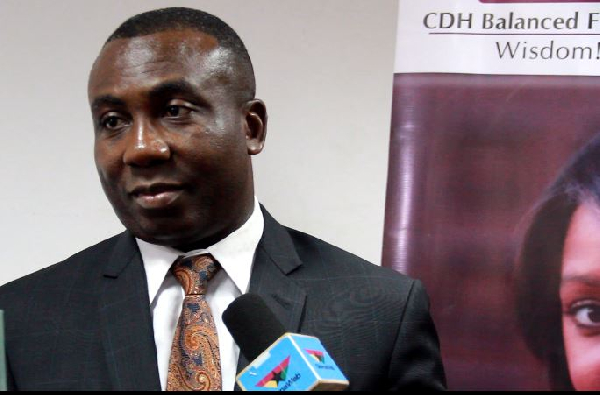Group Chief Executive Officer of CDH Group, Emmanuel Adu-Sarkodee has urged indigenous financial institutions in the country to merge and storm the tide of the harsh economy.
His call comes on the heels of the collapse of seven indigenous banks due to good governance issues, and a recent remark by the industry regulator, Bank of Ghana, that it will allow distressed saving and loans companies to die naturally.
Following the collapse of the seven banks, several savings and loans companies in the country have been impacted adversely either because they have links with the defunct banks or they also suffered from heavy panic withdrawals.
Even some non-banking financial service companies suffered same fate even though they have no relationship with any of the collapsed banks.
Prior to the collapse of the seven local banks, the indigenous banks complained about challenges in meeting a new GHC400 million minimum capital requirement, saying it will either collapse the indigenous banks or force them to merge and cut jobs.
Meanwhile, the BoG is yet to implement the upwardly revised minimum capital requirement for savings and loans and other non-banking financial service companies.
Emmanuel Adu-Sarkodee told Adom News the move by the BoG to sanitize the industry is appropriate and urged industry players to take advantage of the process to merge and be strong enough to meet the new requirements.
“Ghanaians like one man business too much” he said, adding “that is not good for the economy – it is better to merge not only to survive but also to have big and strong institutions that will support the local economy is a more meaningful way”.
Good governance
The CDH Boss recalled that in 2004, CDH went through a similar process by the BoG but it survived because it had its good governance structures in place, even though it had financial challenges at the time.
“CDH is the only institution that has gone through this BoG refining process and survived and we have since been very strict with our good governance practices. BoG has been checking on us regularly even up to date but we never fail the test,” he said.
He therefore urged industry players to pay strict attention to their good governance practices because the laxity on that aspect is what often makes such institution crumble under the regulator’s scrutiny.
Minimum capital
Emmanuel Adu-Sarkodee however noted that even though the Central Bank was right in sanitizing the industry, “I feel they could have supported the institutions to fix their good governance issues and deferred the demand for the minimum capital to allow the institutions to grow.”
He explained that the Ghanaian economy is not strong enough to support local institutions to raise such huge minimum capital locally, so they would be forced to look outside and that would lead to the internationalization of the banking sector, which has its own implications for the economy.
Emmanuel Adu-Sarkordie said now that the BoG has started implementing the refining measures, the only sound option for the indigenous financial institutions is to start looking for mergers to secure value for the clients and the economy.
CDH BFund
Meanwhile, the CDH Balance Fund, chaired by Adu-Sarkordie emerged the best performing balance fund for 2017, recording over 97% growth for the year under review and a whopping 33.7% on returns to shareholders.
At GHC3.71 million, the fund has yielded more than 100% return on investment in less than three years for shareholders.
Interest rates
Emmanuel Adu-Sarkordee however advised Ghanaians to stop demanding for high interest on their deposits to bank, saying that, such high demands is what drives interest rates high and impact negatively on the economy.
“When we call chase after companies offering 10% interest per month, we force banks to give high interest on deposits just to be competitive and that means the banks also give loans at a much higher interest which makes it difficult for indigenous smaller-scale enterprises to access loans,” he said.
Adu-Sarkodee believes there is need for Ghanaians to see the good in accepting reasonable interest on deposits so that banks can also give out affordable loans and drive grow in local businesses and the economy as a whole.
By Samuel Dowuona







